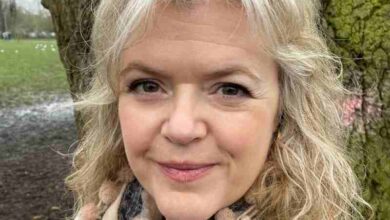Justina Kehinde: A Rising Force in British Theatre and Storytelling

The British theatre scene has long been a fertile ground for talent that reshapes narratives, challenges perspectives, and enriches cultural discourse. Among the emerging voices defining contemporary performance is Justina Kehinde. A multi-talented writer, actor, and director, she is steadily carving a path that merges artistry with activism. Her work is not merely about entertainment; it is about transformation, dialogue, and the reframing of stories often silenced in mainstream spaces. This article delves into her journey, achievements, creative vision, and the lasting impact she is poised to make on the world of theatre, film, and literature.
Early Life and Academic Foundations
Justina Kehinde’s foundation lies in a background steeped in intellectual curiosity and creativity. A graduate of the University of Cambridge, she honed her skills in literature, performance, and the craft of storytelling. The Cambridge environment exposed her to a range of artistic and theoretical influences, from Black feminist theory to post-colonial literature and performance traditions. These academic foundations provided her with tools not only to analyse narratives but also to construct them in ways that challenge conventions and interrogate power structures.
Theatre as a Platform for Change
What distinguishes Justina Kehinde is her conviction that theatre is more than a form of art; it is a catalyst for social reflection. She draws inspiration from Augusto Boal’s Theatre of the Oppressed, which frames performance as a participatory act of dialogue and liberation. This vision is evident in her projects, where characters wrestle with issues of identity, inequality, ecology, and mental health. By using theatre as a platform for change, she ensures that audiences leave the auditorium not only entertained but also challenged to rethink their perspectives.
Breakthrough as a Director
Her professional directorial debut came with Til Death Do Us Part, staged at Theatre 503. The production was celebrated for its sharp writing, emotionally resonant storytelling, and bold tackling of themes around marriage and mortality. It earned the award for Best New Production at the London Pub Theatre Awards in 2022, cementing her status as an artist to watch. The recognition was more than a personal triumph; it highlighted how young directors from diverse backgrounds can reinvigorate the British theatre scene with originality and fearlessness.
Collaboration with Major Productions
Beyond her solo work, Justina Kehinde has collaborated with some of the most respected names in theatre. She served as an associate director on Jeremy Herrin’s West End production of Long Day’s Journey Into Night at Wyndham’s Theatre, which starred Brian Cox and Patricia Clarkson. Her role in such a high-profile production demonstrates the trust placed in her creative eye and the respect she commands within professional circles. Moreover, she continues to expand her collaborative reach by working with Rebecca Frecknall on Cat on a Hot Tin Roof, ensuring her voice influences classic as well as contemporary theatre.
Acclaim as an Actor
While directing has brought her acclaim, Justina Kehinde is equally accomplished as an actor. She is known for portraying Marianne in Girl from the North Country, Conor McPherson’s haunting musical inspired by the works of Bob Dylan. The production has toured the UK and Ireland, and in 2025 it returned to London’s iconic Old Vic, where her performance was again at the centre of attention. She has also appeared in television productions, including Netflix’s The Sandman, Father Brown, and Holby City. These roles highlight her versatility and ability to traverse both stage and screen with equal command.
Writing as an Extension of Activism
Her talent is not confined to performance and direction. Justina Kehinde is also an accomplished poet and writer. In 2012, she won the Benjamin Zephaniah Poetry Prize, an early recognition of her ability to wield language as a force for change. She has since been commissioned by institutions such as the United Nations Population Fund and the Icelandic government to create works addressing global issues including gender inequality, harmful traditional practices, and the #MeToo movement. Her writing bridges artistry and activism, carrying the same passion that informs her theatre work.
Training and Professional Development
Kehinde’s growth as an artist has been bolstered by her participation in prestigious programmes. She has been a member of the Soho Writers Lab, BBC London Voices, and the Royal Court Writers Group. These platforms gave her opportunities to refine her craft, collaborate with peers, and connect with mentors. Each residency or workshop has expanded her range, allowing her to develop projects across theatre, television, and film. Currently, she is working on original television scripts, which promises to extend her influence into broader media landscapes.
Thematic Concerns in Her Work
A recurring hallmark of Justina Kehinde’s work is her engagement with themes that resonate deeply with contemporary society. She frequently explores:
-
Gender and Identity: How women, particularly Black women, navigate societal expectations.
-
Diasporic Experience: The complexity of living between cultures, honouring roots while forging new identities.
-
Mental Health: A commitment to destigmatising conversations around emotional well-being.
-
Ecology and Myth: Using folklore and nature as lenses through which to understand modern struggles.
These thematic concerns make her productions not only artistically rich but also socially urgent.
Recognition and Representation
The recognition Justina Kehinde has received is both national and international. Winning major awards early in her career has helped to amplify her voice. Equally important is her professional representation by Curtis Brown for acting and United Agents for writing and directing. These agencies are known for guiding some of the most influential artists of our time, a clear sign of the regard in which she is held. The combination of critical acclaim and strong representation sets her on a path toward sustained influence.
Current and Future Projects
At present, she continues to balance acting, directing, and writing. Her role in Girl from the North Country at The Old Vic showcases her talent as a performer, while her involvement in Cat on a Hot Tin Roof demonstrates her ongoing contribution to reimagining classic theatre. Simultaneously, her television projects in development promise to expand her reach to new audiences. Each endeavour reflects her mission to tell stories that are urgent, inclusive, and transformative.
The Importance of Representation in British Theatre
The rise of Justina Kehinde is also significant in a wider cultural context. British theatre has often been criticised for lacking diversity, both in the stories told and the people behind them. Artists like Kehinde challenge this narrative, ensuring that diasporic, female, and marginalised voices are placed centre stage. By doing so, she not only creates opportunities for herself but also paves the way for the next generation of storytellers who wish to see their experiences reflected in national art.
Style and Artistic Signature
Audiences and critics alike have noted the distinctive signature she brings to her projects. As a director, her style blends precision with sensitivity, ensuring that every moment on stage carries emotional weight. As an actor, her performances are marked by depth, authenticity, and a refusal to reduce complex characters to stereotypes. As a writer, her words carry rhythm, power, and clarity, making them resonate long after they are spoken. This trifold artistry ensures she stands out in an industry where many specialise in only one area.
Critical Reception
Reviews of her performances and productions consistently highlight her ability to combine intellect with emotion. Critics of Til Death Do Us Part praised the way she balanced humour and tragedy, while audiences of Girl from the North Country were moved by her soulful portrayal of Marianne. Such responses are evidence that her work not only satisfies artistic standards but also connects deeply with viewers on a human level.
Vision for the Future
Looking ahead, Justina Kehinde’s vision is clearly to broaden the possibilities of storytelling. She is committed to expanding into film and television, mediums that will allow her to reach global audiences. Her continuing exploration of myths, ecology, and social justice themes indicates that she intends to create work that is both personal and universal. The combination of ambition, talent, and social commitment ensures her future projects will remain relevant and impactful.
Conclusion
The story of Justina Kehinde is one of determination, versatility, and vision. She has already achieved remarkable milestones as a writer, actor, and director, and yet her career is still in its early stages. Her artistry is enriched by a deep awareness of the social and political landscapes she inhabits, and her ability to weave these into compelling narratives makes her one of the most exciting voices in contemporary British culture. As she continues to create, perform, and inspire, it is clear that Justina Kehinde is not just a rising star but a transformative figure in the arts.



